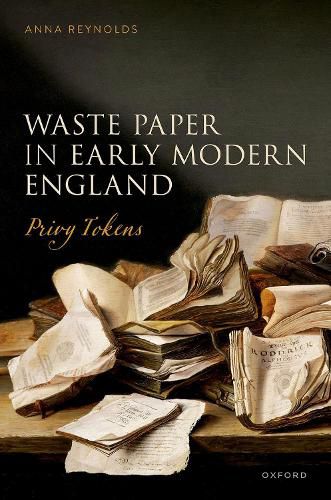Waste Paper in Early Modern England
Anna Reynolds

Waste Paper in Early Modern England
Anna Reynolds
The ubiquity of waste paper in early modern England has long been misunderstood. Though insults and modesty tropes that refer to waste paper are widespread, these have often been dismissed as nothing more than rhetorical flourishes. Paired with the common misconception that paper would have been too valuable to 'waste' in the sixteenth and seventeenth centuries, these tropes have been read as scatological flights of fancy. Waste Paper in Early Modern England argues that such commonplaces are in fact indicative of everyday, material experience - of an author's, reader's, housewife's, or city-dweller's immersion in an environment brimming with repurposed scraps and sheets. It demonstrates that waste paper makes visible a radically different understanding of waste matter in the early modern period than in our own. More than a rhetorical aside, repurposed pages were both materially and figuratively useful. Drawing on a range of literary, pictorial, and bibliographical sources, Waste Paper in Early Modern England reveals how layers of meaning accreted around paper fragments in the sixteenth and seventeenth centuries, and how, because of the widespread sensitivity to the life cycle of paper and books, wasted pages prompted meaningful imaginative work. The book's five chapters recount how, in this period, the biography of waste paper provided a thing to think with concerning matter and temporality - a potent and flexible emblem for the troublesome passage of books and all other sorts of bodies through time.
This item is not currently in-stock. It can be ordered online and is expected to ship in approx 2 weeks
Our stock data is updated periodically, and availability may change throughout the day for in-demand items. Please call the relevant shop for the most current stock information. Prices are subject to change without notice.
Sign in or become a Readings Member to add this title to a wishlist.


